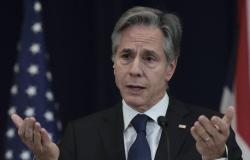The former US ambassador to Romania Adrian Zuckerman declared that our country must have the courage to fight for acceptance in the Schengen area. The former diplomat claimed on TVR Info that the position of the authorities in Vienna is unjustified, and behind the refusal of our country’s accession are Russian influences.
Schengen areaPhoto: Karaboux / Dreamstime.com
Zuckerman blamed Romania’s rejection in the Schengen area on protectionism, in the case of the Netherlands, and Russian influence, in the case of Austria, notes news.ro.
“I think that the Austrians, Hungarians, and Dutch should be ashamed of blocking Romania from entering Schengen. It is a mixture of protectionism of the agricultural industry, of the port in Holland, and Russian influence in Hungary and Austria, in my opinion, that causes them to block. (…) The reasons given by the Austrian Minister of the Interior that there are human trafficking syndicates in Romania are unbelievable. The largest such unions are in the Netherlands, France and Western Europe. It’s a shame and Romania must have the courage to stop accepting this non-acceptance in Schengen,” said Zuckerman.
Adrian Zuckerman was the US ambassador to Romania during 2019-2021.
Romania, along with other states, should enter the Visa Waiver program as soon as possible, believes the former US ambassador to Romania.
“I think that the Visa Waiver must be done for Romania, and, most importantly, as quickly and as well as possible”, said Adrian Zuckerman.
Along with other former American ambassadors of Bucharest, in July 2022, he signed a letter to the Romanians, in which it was stated that the inclusion of Romania in the Visa Waiver program would constitute a strong amplifier for all dimensions of the Strategic Partnership, because it would stimulate trade, tourism, educational exchanges, as well as human relations, that the Governments of the two states must continue to work together to progress towards fulfilling the requirements for Romania’s admission to this program.
Austria, unyielding
Austria will maintain its veto on the accession of Romania and Bulgaria to the Schengen area until Vienna notes a “sustained decrease” in the number of asylum seekers, Austrian Foreign Minister Alexander Schallenberg said recently, according to Politico.
Asylum applications in Austria (not including Ukrainians) nearly tripled last year to around 110,000, the highest per capita rate in the EU, prompting Vienna to block the expansion of the Schengen area in December.
“What is important for us, to be very honest, is that the numbers go down and there has to be a sustained drop,” Schallenberg said, calling the veto a “red flag” for Brussels.
“We have to understand that when we see more than 100,000 asylum applications every 12 months, it is difficult for us, for Austria, to simply let this dysfunctional system continue,” the head of Austrian diplomacy added.
Schallenberg said his government was encouraged by the EU’s “action plan” to tighten border controls and speed up asylum procedures, but needed to see much more progress.
“As a country in the heart of Europe, Austria is a big beneficiary of the Schengen area and we want it to work,” he said.
Why are there so many asylum applications in Austria?
The main reason Austria has so many refugees is that other EU countries along the so-called Balkan route, notably Hungary, refuse to register most asylum seekers, a step that under EU rules would allow Vienna to send them back to that country after they arrived in Austria.
Under the so-called Dublin rule, the country where a refugee enters the EU and is registered is responsible for managing that person’s case.
Last year, the EU received about one million refugees, excluding Ukrainians, which is an increase of almost 50%.
If France and Germany had registered as many as Austria per capita, both countries would have had a million on their own, Schallenberg argued.
Vienna’s stubbornness is eroding the EU
Critics say Vienna’s move unnecessarily erodes EU unity at a time when member countries should be striving to show more unity.
Many members of the Austrian business community, which have significant investments in both Romania and Bulgaria, were also alarmed by the Vienna government’s decision.
However, Austria’s ruling coalition, led by Schallenberg’s People’s Party, has another concern: the far-right Freedom Party took an overwhelming lead in national opinion polls just over a year ago of the next elections.
Migration at the heart of Austria’s political battle
One of the reasons for this increase is that the party’s flagship issue, migration, has returned to the center of the political debate.
Since the influx of refugees in 2015, several EU countries, including Austria, Germany and France, have begun suspending Schengen at some border crossings.
Schallenberg stressed that his government’s ultimate goal, through its hard line on Schengen expansion, is to return to the pre-2015 system of truly borderless travel.
“We want a system where we don’t have to maintain border controls anymore,” he said. “No one benefits and we don’t do them because we enjoy it, but because we have no other choice.”
(photo source Dreamstime)
Tags: Romania accepted Schengen Russian influences Austria ambassador
-




